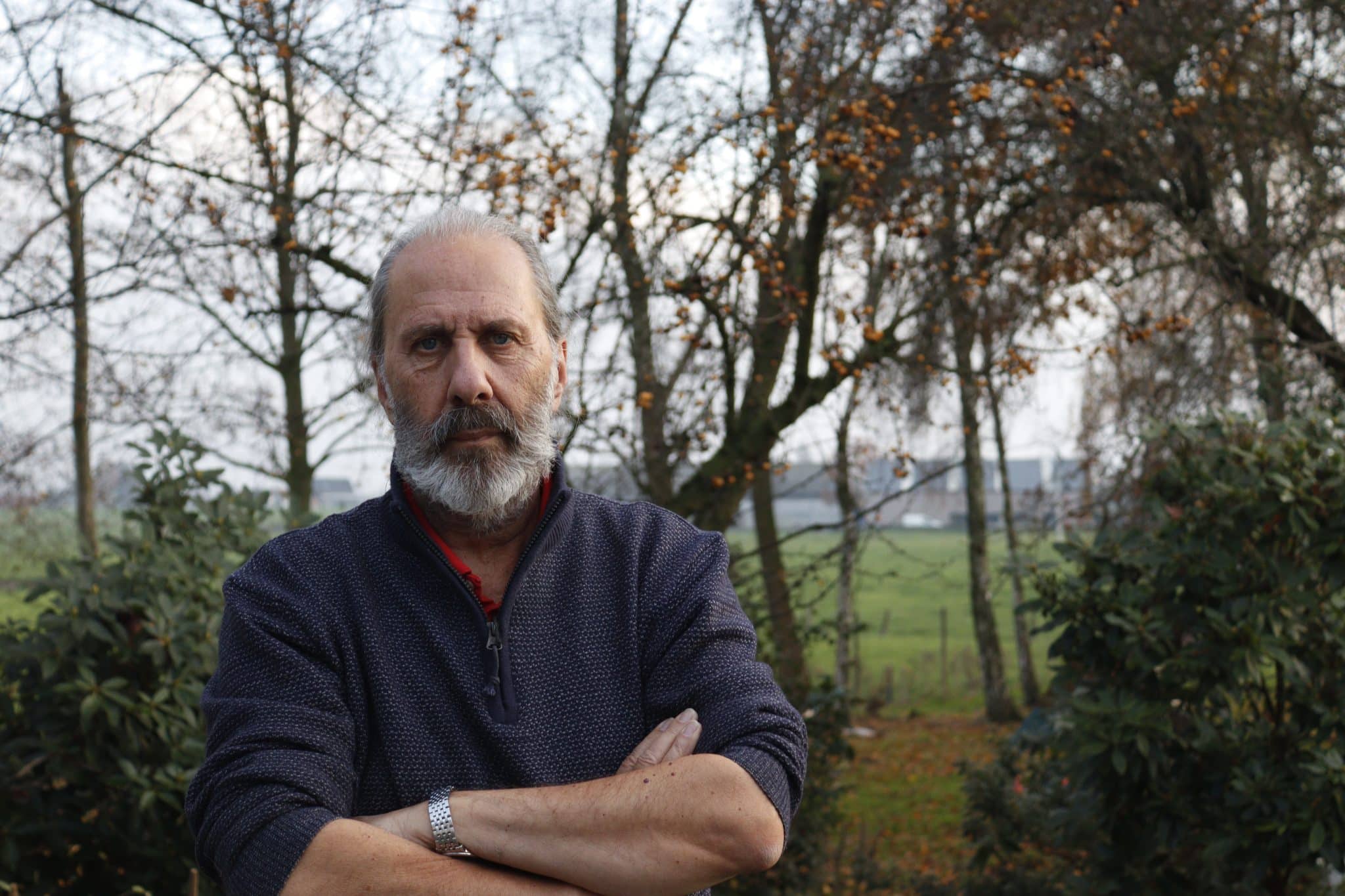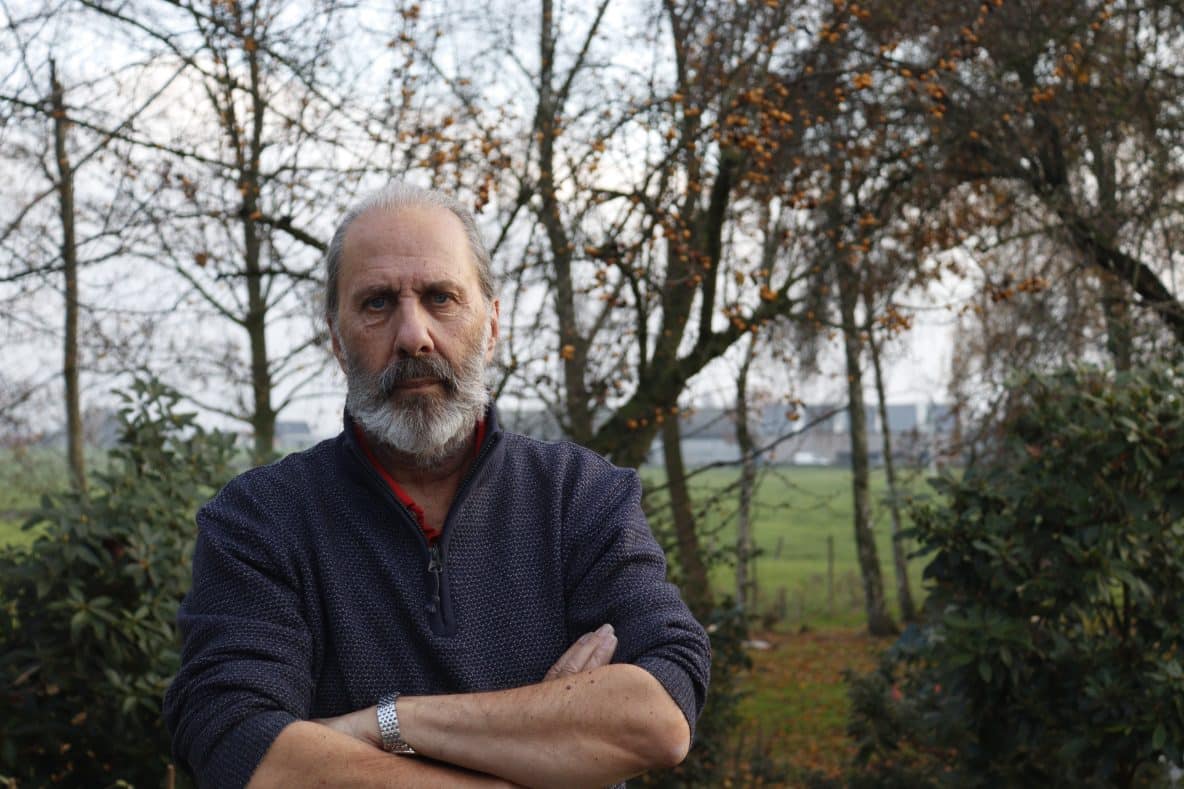Frank Leguen de Lacroix came to Belgium and never looked back. He’s originally from a little town called Suffolk in England and lived there until he was 28. In 1978, he decided it was time for a change and applied to work abroad. Many years later, he still lives here and even has a family.
Frank was working for the British government in the 1970s. One day he came into work and saw a colleague reading a flyer. The man said: “Oh, I’m not interested in that,” and threw the flyer away. Frank was intrigued and went to see what it was about. It was a flyer advertising jobs abroad, but the deadline had almost expired. Frank thought: “Why not? They were looking for people who spoke multiple languages. I spoke French and Italian. But when I applied, I was already too late.” So he went to the EU office in London. They told him he should apply anyway because they were still looking for people. And so he did. Frank had an interview, one thing led to another, and he eventually got assigned to work in Brussels.
Frank decided to apply for the program because he had been working where he was for quite a while. He just wanted a change. “I never particularly knew that I would end up in Belgium. The flyer mentioned all European countries. I could’ve ended up anywhere, but the two main places I was likely to end up were Brussels or Luxembourg.” Frank didn’t have a lot of expectations and went into it with an open mind. He initially thought he would stay for a few years but ended up staying permanently. “I thought I would do something different for a few years and then see what I would do afterwards. One thing led to another, and it became less likely that I would suddenly pick up and go somewhere completely different,” Frank adds.
His first months in Belgium
It would be tough to leave everything behind. Moving to a different country is a significant change. But Frank found it very easy. When he came to Belgium, he met a lot of people. They were all from different countries and arrived around the same time. Before they could start working for the EU, they had to take a month-long course. Frank says: “We were all taking this course together, so we immediately had a group that we could go around with. We all had different nationalities because all the Belgians went home in the evening. Every night we all met up and went somewhere every day for a month. I still know those people to this day.”
After the month-long course, Frank began working. He still worked for the European Union but in a different field and country this time. The area assigned to him was agriculture. He also dealt directly with the agricultural press and organized conferences. “I spent years doing a lot of different things. This job in Belgium felt like I was on an extended holiday because we travelled a lot. Mainly when I was doing communication, I went all over the place giving talks for this. We spoke to these people about our policy and what they didn’t like. It was really enjoyable, and it didn’t feel like work.”
I spent years doing a lot of different things. This job in Belgium felt like I was on an extended holiday.”
Frank Leguen Lacroix
Even though people also speak Dutch in Belgium, Frank wasn’t really aware of this during his first years. Until the 1990s, he rarely heard the language. Once more people from Eastern Europe arrived, they started to speak English. So up until the 90s, the common language at work was French. In social situations, he also spoke French since most of his friends were German. However, his French could have been better when he arrived. “I learned it in school, but I wasn’t fluent. When I came to work in Belgium, I picked up a more everyday French. I also have a French-sounding last name, namely Leguen Lacroix. My family used to be from Brittany. When people saw my name, they assumed I was from France. So they immediately started speaking in French. That’s how I learned a lot”, Frank explains.
Belgian nationality because of Brexit
The most significant change Frank experienced in Belgium was his move from “Brabant Wallon” to “Vlaams Brabant”. “It’s quite different. The language, but also the traditions and lifestyle are different”, says Frank. He made the move because he met Marijke, his wife. She lived in Londerzeel, and Frank came to live with her. Now he also has Belgian nationality. Yet, he only applied for citizenship when Brexit came along. This complicated travelling a lot. “I took on a Belgian nationality because of Brexit. Before, there was no need. However, I’ve been here since 1978, so probably longer than half the population.”

Moving back?
When Frank looks back, he doesn’t regret moving to Belgium. In fact, now he wouldn’t want to move back to the UK. “I could have reapplied for my old job, but I didn’t want to. It would’ve depended on the prospects of the job. By then, I had already moved up the ladder here, and I wouldn’t want to take a step backwards.”
A lot later, the UK voted in favour of Brexit. This made moving back even less interesting. Brexit is one of the factors why Frank is reluctant to return to the UK. He explains his opinion on Brexit in the audio file below.
Brexit isn’t the only reason why Frank wouldn’t want to live in the UK nowadays. He also wouldn’t know where to go. “In England, people are very mobile. If I go back to my hometown, I know only one person there. My parents don’t live there anymore since they both died. I do have other relatives, but they all live in completely different parts of the country”, he explains.
In England, people are very mobile. If I go back to my hometown, there’s only one person there that I know.”
Frank Leguen Lacroix
The UK Frank used to know and grew up in is partly gone. A lot has changed since he moved to Belgium. “I don’t know what’s happening in the UK. Nowadays, it’s so full of crime as well. Where I grew up, you didn’t have much. Yes, there was crime in London, but not in the countryside. Where I lived, people didn’t even lock their doors. It used to be completely safe. But now there’s crime all over the place.”
Where he’s at now
Although it is where he grew up, Frank doesn’t feel the pull to return. Yet, at one point, he did think of moving again. “I had thought about it. The EU has an office in Alicante. I was considering it, but now it’s not only my choice. Marijke has never lived less than walking distance from her mother. She likes it here, and we have the dogs now. As long as she’s working, I don’t see us moving. It’s even more complicated now because our daughter, Natalie, is studying here. I don’t see us moving anytime soon.”
[jetpack-related-posts]
